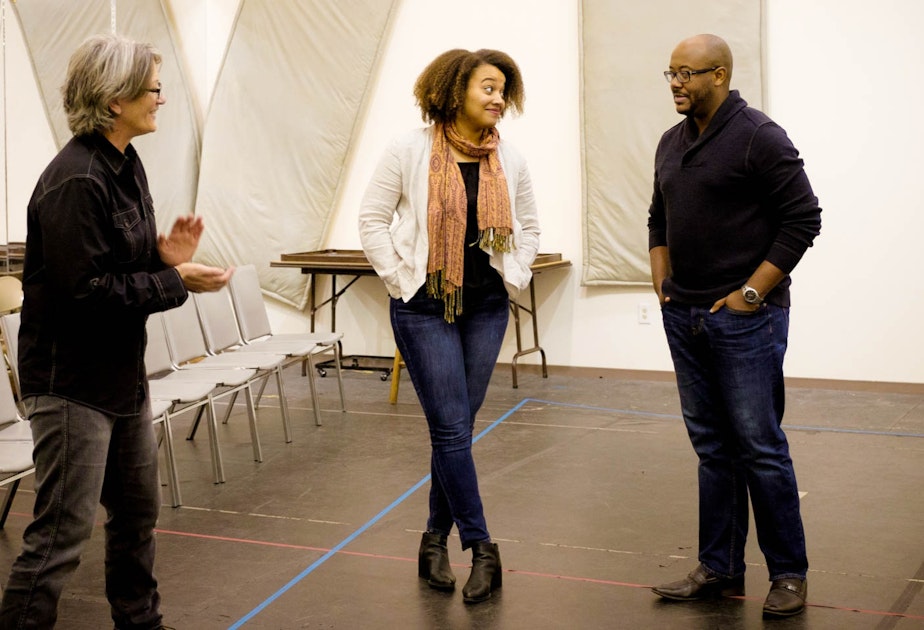Introducing trans identity to the Seattle Opera

When Aidan Lang took over the helm of Seattle Opera two years ago, he faced the same challenge as every other nonprofit arts group in the city:
How to make both his organization and its art form relevant in the digital age.
Seattle Opera was founded in 1963 and has earned an international reputation for regular productions of Richard Wagner’s four-hour epic “Ring Cycle” and other opera classics.
But in 2012, the lingering impact of the Great Recession forced Seattle Opera to pare back its budget and its artistic offerings. The company also put on hold a long-planned renovation of the old Mercer Arena, on the Seattle Center campus.
Like other traditional, live performance, opera has to compete with everything from movies on demand to more contemporary live art offerings.
Sponsored
Lang came to Seattle from New Zealand Opera. He was struck immediately by the rapid economic growth here and by the influx and diversity of the area’s newcomers.
He also noticed that these newcomers were not flocking to Seattle Opera performances.
So Lang decided it was time to overhaul the venerable organization’s vision and mission statements.
Opera is still the priority, but Lang inserted language in the company’s official vision statement that dedicates the it to reflecting the region’s changing demographic, and appealing to a wider audience.
“We’re here to create a better city,” Lang says. “Our purpose is to be part of the dialog; that’s what arts are for!”
Sponsored
In addition to rethinking how to stage classic operas like “La Traviata” or “Hansel and Gretel,” to make them more accessible to 21
st
century audiences, Lang and his staff have also begun producing newer, edgier work.
In November, the company presents a chamber opera called “As One.” It’s the story of an all-American boy who knows he’s really an all-American girl.
Sponsored
“The fact that it’s about a trans woman becoming herself is beyond the subject matter normally covered in opera,” says the show's stage director, L. Zane Jones.
That’s what attracted her to the project, the first opera she’s ever directed.
“There’s something healing and beautiful about the opportunity to work on something that’s an under-told story,” she says. “Storytelling is a powerful, powerful way that we can know ourselves, and each other.”
“As One” will be performed at the historic Washington Hall, in Seattle’s Central District, part of another Seattle Opera initiative to bring the art form to the audience, when possible. It’s an attempt to sidestep the intimidation factor, and ticket prices, at the 3,000-seat McCaw Hall.
“It’s like a courtship,” Lang acknowledges.
Sponsored
There are no guarantees that Seattle Opera will succeed in its efforts to broaden the opera’s appeal.
Lang’s colleagues at Pacific Northwest Ballet and Seattle Symphony, along with a slew of smaller arts groups in the region, have grappled with the same challenge: to lure newer, younger, more diverse audiences to live performances of classical art.
If they don’t broaden their appeal, they’ll watch their funds dwindle away as their core, an older, whiter audience, dies off.
But money doesn’t seem to be Aidan Lang’s main motivator.
His face is animated when he talks about his company’s future.
Sponsored
“What I’m hoping,” he explains, “is that we build Seattle Opera, an opera company for Seattle, not one that just happens to be here and is a clone of something else.”
Seattle Opera’s production of “As One,” at Washington Hall in Seattle’s Central District, runs November 11-19.

